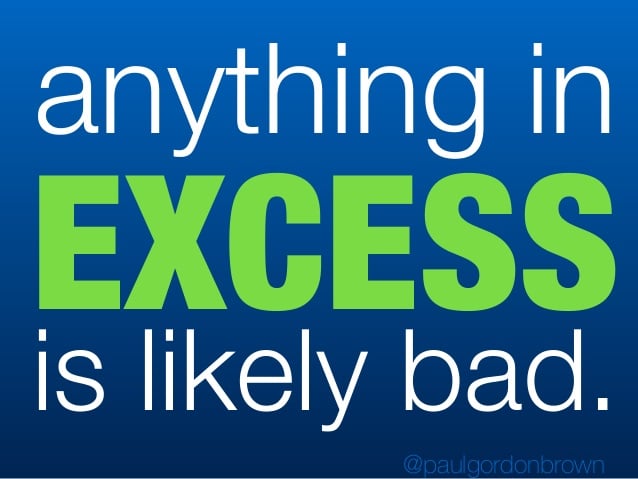
There is an old saying: “Excesses meet.” Too much fasting and too much eating come to the same end. Keeping too long a vigil brings the same disastrous cost as … sluggishness… Too much self-denial brings weakness and induces the same condition as carelessness. Often I have seen men who would not be snared by gluttony fall, nevertheless, through immoderate fasting and tumble in weakness into the very urge which they had overcome. Unmeasured vigils and foolish denial of rest overcame those whom sleep could not overcome. Therefore, ‘fortified to right and to left in the armor of justice,’ as the apostle says (2 Cor. 6:7), life must be lived with due measure and, with discernment for a guide, the road must be traveled between the two kinds of excess so that in the end we may not allow ourselves to be diverted from the pathway of restraint which has been laid down for us nor fall through dangerous carelessness into the urgings of gluttony and self-indulgence.
St. John Cassian — Conferences, Conference Two: On Discernment no. 16; Paulist Press pg. 76, 5th century
Furthermore, every ethical virtue is a condition intermediate (a “golden mean” as it is popularly known) between two other states, one involving excess, and the other deficiency (1106a26–b28). In this respect, Aristotle says, the virtues are no different from technical skills: every skilled worker knows how to avoid excess and deficiency, and is in a condition intermediate between two extremes. The courageous person, for example, judges that some dangers are worth facing and others not, and experiences fear to a degree that is appropriate to his circumstances. He lies between the coward, who flees every danger and experiences excessive fear, and the rash person, who judges every danger worth facing and experiences little or no fear. Aristotle holds that this same topography applies to every ethical virtue: all are located on a map that places the virtues between states of excess and deficiency.
Stanford Encyclopedia of Philosophy
I find it interesting that St. John Cassian comes so close to agreeing with Aristotle on the idea of a virtue being the golden mean between two excesses. Like Aristotle, I believe that St. John Cassian would agree that where this point is found changes from individual to individual. Thus, the point of courage for a trained law enforcement officer would be different than for an untrained under-exercised civilian. In the same way, appropriate fasting would be different for a monk than for a lay person working a regular job or for a person with certain medical conditions, etc.
Nevertheless, we are entering a fasting period and the danger of intemperate observance of Great Lent is a yearly event. If you fast too much, you run into the danger of pride, that self-pride that says that you are doing so much better than the rest. If you fast too little, you run into the danger of an egotistical disobedience that sets you up as the ultimate authority rather than the Church through its bishops.
I fully agree with St. John Cassian when he comments on the dangers at either end, particularly those dangers of tumbling into the very sin you are trying to avoid because you overdid or underdid the fast. I like his condemnation of the dangers of overdoing the vigils so that you tumble into a physiological reaction caused by lack of sleep that mimics those who never observe a vigil and those who are lazy. Again, what a monk can safely observe is different than what a miner can safely undertake.
We are but five weeks from entering into Great Lent. Let us be aware of the dangers of going to one extreme or the other. Rather, let us seek to acquire the Holy Spirit so that we may humbly follow the road which we are supposed to follow through our journey during Great Lent.



Leave a Reply